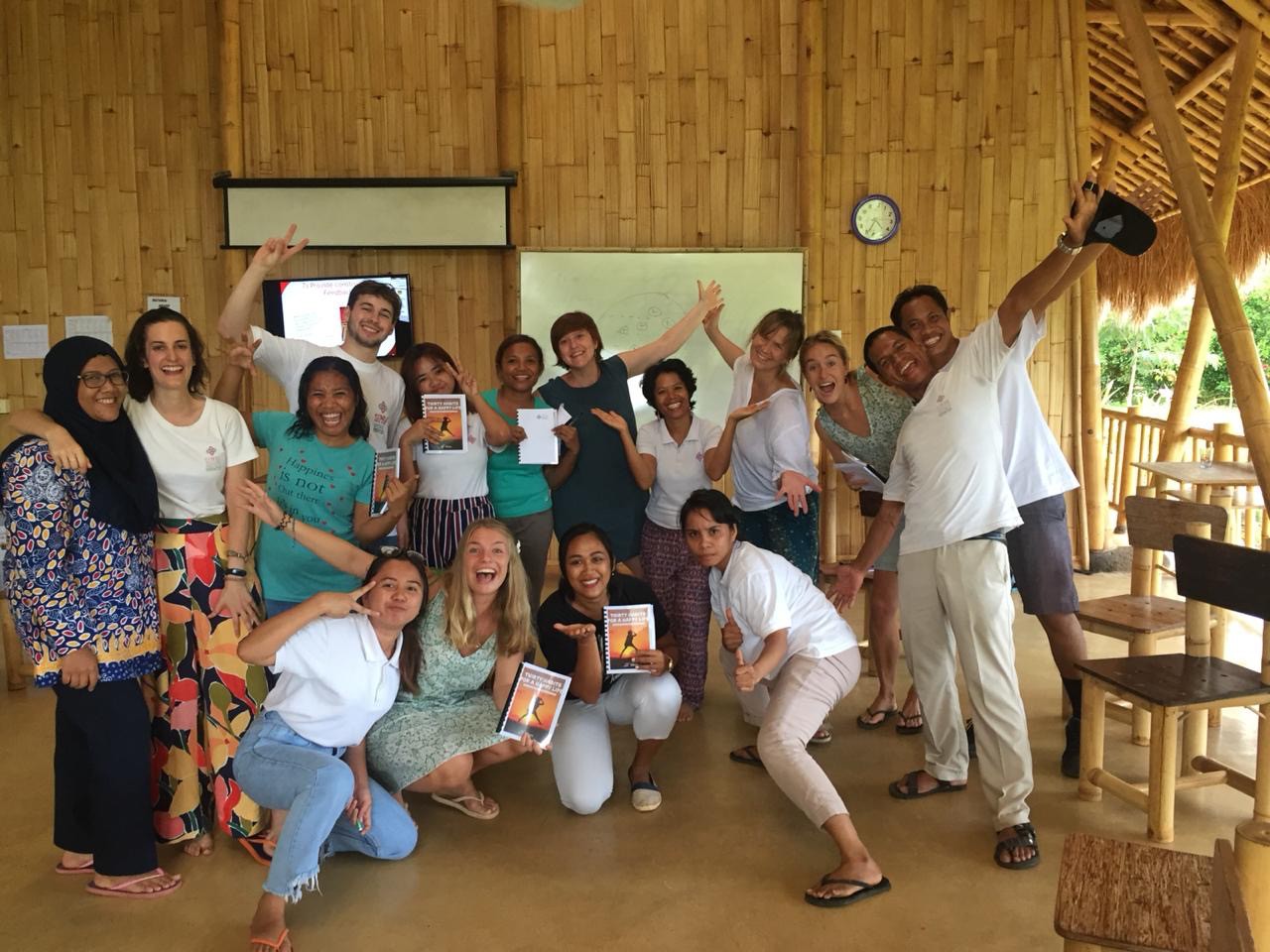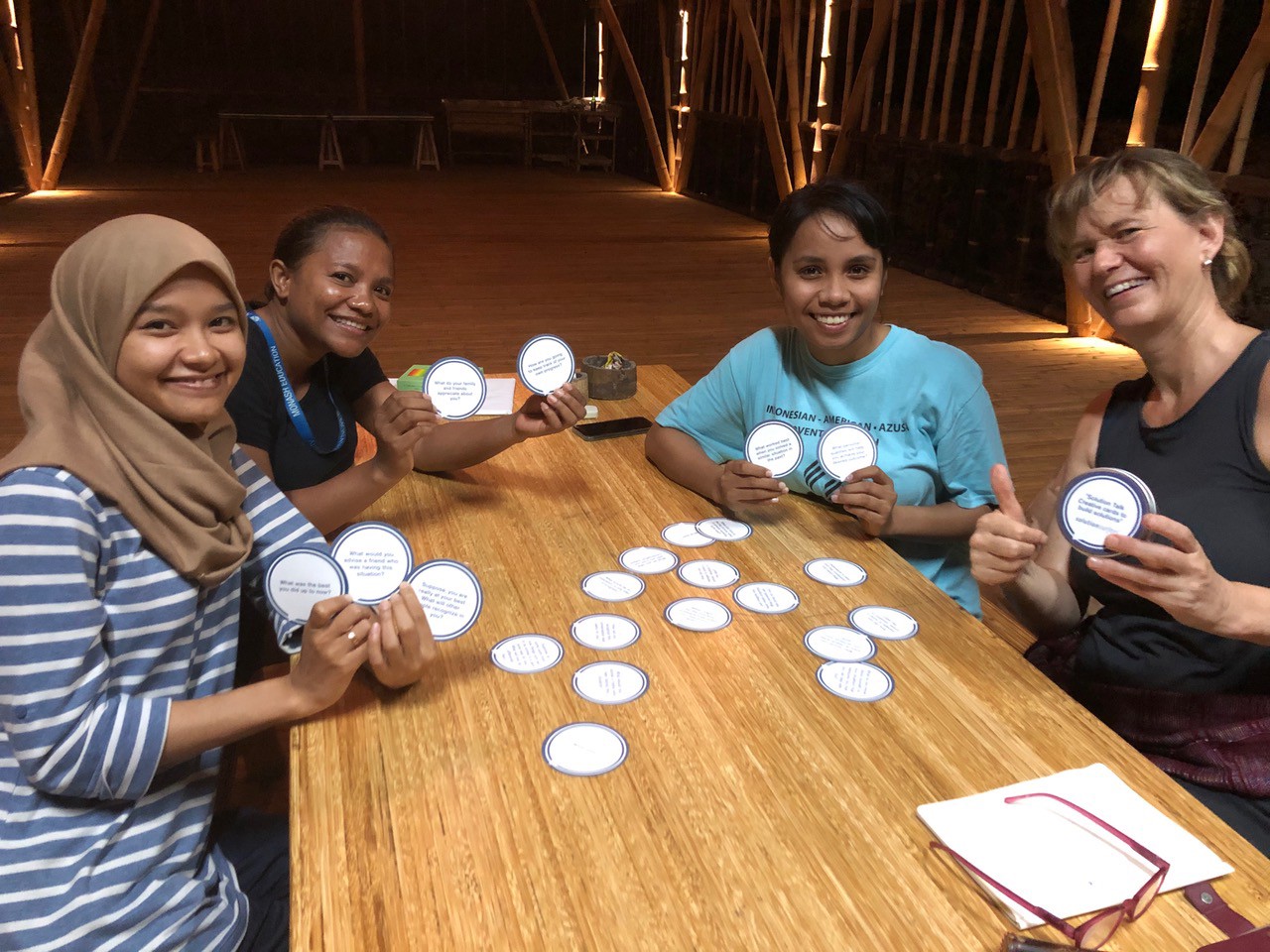"Being captain of their boats"
Case Study - Solution Focus workshops at SHF School in Indonesia
Jan 10, 2021

Introduced by Julia Kalenberg
This story is of SF practitioner Liselotte Baeijaert bringing SF to students of a school for hotel workers on the beautiful island of Sumba/Indonesia. A tale of how SF can work even when language first seems to be a barrier. It is a story of mutual learning, of working with what is there and of combining SF practice creatively with bodywork.
Liselotte came across SF when she attended an SF training course for general practitioners by Luc Isebaert from the Korzybski Institute in Belgium. Back then, she worked as an HR expert in a bank. This first experience with SF inspired her to look for more SF training. She trained with Louis Cauffman, Insoo Kim Berg, Mark McKergow and Jenny Clarke, Peter Szabo, Ben Furman and many more.
She started working as an independent trainer and coach in 1999, and in 2006 she met Anton Stellamans. Together they founded Ilfaro. Ilfaro specialises in SF coaching, leadership and facilitation in organisations. In 2009 Anton and Liselotte co-authored the book ‘Resilient People, Resilient Teams.’
Next to SF, Liselotte is also fascinated by bodywork, mindfulness, movement, and breath-work – to name a few disciplines she integrates into her SF work. A close friend of Liselotte, Inge de Lathauwer, first stepped foot on the beautiful Indonesian island of Sumba in 2013. She was overwhelmed by the beauty of nature there and saddened by the living conditions of the people. She founded a hotel school to allow local people to build sustainable tourism and benefit from it.

Liselotte was thrilled when Inge invited her to introduce ’life skills’ in the school. She hoped to create workshops that would strengthen the students and give them tools to deal with setbacks in their new and challenging professional situation, being far away from their communities. An ambitious project with only three workshops of a half-day each!
The students’ very basic level of English was a challenge. The language had to be at a basic level. Instead of using words like resilience, Liselotte introduced a small booklet “30 habits for a happy life” with efficient exercises. In the interview, Liselotte and Julia discuss what a teacher can do beyond using verbal language.
Liselotte’s vast experience of bodywork matched very well with the culture of the people there. She did not want to simply bring the best SF practices to them but build on all the strengths and resources of the students, their community feeling and strong embodiment.
Having a long tradition of animistic beliefs and rituals, the students also have a powerful feeling for togetherness and community. They show their emotions in a very natural and spontaneous way. One of the things they learned in the workshops is how they can regulate these emotions better when the feelings are too overwhelming and not useful.

In the video, Liselotte demonstrates in an impressive exercise, in which she elegantly fuses constellation work, movement, breathing and Solution Focus, how to step out of painful emotions and invite more of “what you want instead” into your life.
With only three half-day workshops, the students embarked with Liselotte on a journey to discover their strength and power - to be “the captains of their boat”, with the boat as a metaphor for their life. She wanted to help them cope better with stressful situations in their life. They began to realise that they have choices in life. And it is very ok for her if they keep calling her “the happy teacher”.
If you are interested in the project in Sumba, please go to http://www.sumbahospitalityfoundation.org